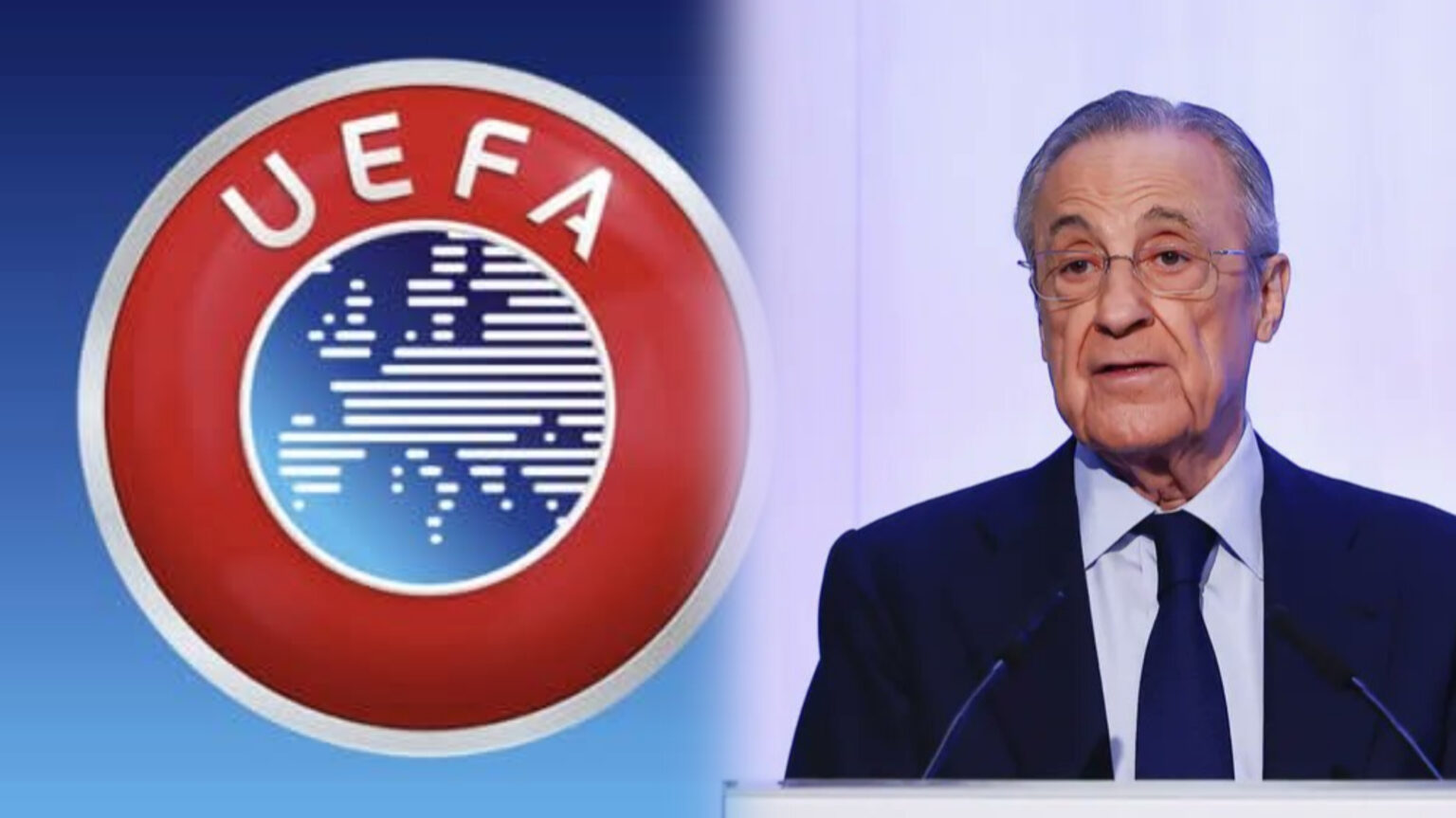Sport
OFFICIAL: UEFA sanctions Real Madrid, the verdict is in!

In a landmark disciplinary decision, UEFA has officially sanctioned Real Madrid following confirmed incidents of racist behavior by a section of its fans during their UEFA Champions League quarter-final clash against Arsenal. The verdict has stirred reactions across Europe and is being seen as a significant moment in football’s ongoing battle against racism.
The incident occurred on April 8, 2025, at the Emirates Stadium in London, where Real Madrid suffered a humiliating 3-0 defeat at the hands of the Gunners. However, the night was marred not just by the result, but by shameful scenes involving a segment of Madrid supporters engaging in racist chants and behavior directed at Arsenal players and fans.
After a thorough investigation, UEFA’s Control, Ethics and Disciplinary Committee concluded that the reports and video evidence submitted were conclusive enough to warrant sanctions against the Spanish giants. The verdict was delivered on May 2, 2025, and has already sparked debate both in Spain and internationally.
Real Madrid has been fined €15,000, a figure that some critics have argued is symbolic rather than punitive. But beyond the monetary penalty, UEFA imposed a conditional ban on ticket sales to away fans for matches held under UEFA’s jurisdiction. This sanction is suspended for a year and will only come into effect if there are further incidents of similar nature involving Madrid fans.
While the suspension gives Madrid a narrow window to rectify internal control among its fanbase, the threat of losing away ticket privileges hangs like a sword over the club’s head. Should another incident occur within the next 12 months, the punishment will automatically be enforced without further deliberation.
UEFA’s statement emphasized that the punishment is intended to “send a strong and clear message that racism and all forms of discrimination have no place in football.” The governing body reaffirmed its commitment to creating a safe and respectful environment for players, fans, and officials alike.
The match in question eventually turned into a nightmare for Madrid. Not only did they lose 3-0 in London, but they were also eliminated after suffering a 2-1 defeat in the second leg at the Santiago Bernabéu, confirming Arsenal’s qualification to the semi-finals with a commanding 5-1 aggregate victory.
Madrid, one of Europe’s most successful clubs, now faces pressure not just on the pitch but off it. The club’s reputation is at stake, and this incident could have long-term implications for its image globally, especially in markets where diversity and inclusivity are paramount.
In response to the sanction, Real Madrid released a short statement condemning all forms of racism and pledging to investigate the matter internally. “Real Madrid takes these allegations seriously. We will work with authorities to identify those responsible and ensure they are held accountable,” the club said.
However, some fans and pundits feel the club’s statement fell short of accepting full responsibility or detailing concrete steps to address the issue. Critics argue that stronger measures are needed, including lifetime bans for the culprits and mandatory anti-racism education for fans and staff.
This isn’t the first time UEFA has had to intervene against racism in football, but cases involving top-tier clubs like Real Madrid carry added weight. Football’s governing bodies are under growing pressure to take bolder actions and enforce more severe penalties to deter similar incidents.
The disciplinary verdict also comes at a time when the broader football community is calling for more unified action against racism. Players, coaches, and fans across leagues have demanded accountability and the implementation of long-term educational campaigns.
Interestingly, this development also casts a shadow over Real Madrid’s immediate future in European competitions. Any misstep from now on—on or off the pitch—could see the suspended ban triggered, creating complications for the club’s loyal traveling supporters.
The incident is also a stark reminder of the ongoing challenges that elite football clubs face in managing their vast, passionate, and sometimes problematic fan bases. Balancing freedom of expression with responsible support remains a delicate task.
Meanwhile, Arsenal has not publicly commented on the UEFA ruling, though several of their players have previously voiced support for stronger action against racism, especially following incidents in past seasons.
Some Spanish media outlets have criticized UEFA’s decision as overly harsh, while others believe the punishment doesn’t go far enough to make a lasting impact. The mixed reactions reflect the complex nature of applying justice in football, where national interests often intersect with broader ethical concerns.
As Real Madrid prepare for the upcoming Champions League campaign, they must now ensure that such disgraceful incidents are never repeated. The onus is on the club’s leadership to turn this moment of shame into a starting point for serious reform and awareness.
Only time will tell whether this punishment will lead to meaningful change or simply serve as a warning shot that fades into history. But for now, one thing is clear: UEFA’s verdict is in, and Real Madrid must respond not just with words, but with action.

 Sport11 months ago
Sport11 months ago“I’m not trying to criticize Ancelotti, but I’m not happy with him for benching that player”: Bellingham Expresses Frustration Over Ancelotti’s Tactical Decision

 Sport11 months ago
Sport11 months agoBREAKING: Manchester City vs Liverpool Clash Cancelled! Title Race Takes a Twist

 Sport11 months ago
Sport11 months agoArsenal Poised for January Swoop on €70 Million Star Dusan Vlahovic

 Sport11 months ago
Sport11 months agoWHAT ON GOD’S GREEN EARTH DID WE JUST SEE?!

 Sport11 months ago
Sport11 months agoReal Madrid: Carlo Ancelotti’s Surprising Revelations About an Unexpected Quality of Vinicius

 Sport11 months ago
Sport11 months agoBREAKING: Arsenal’s Champions League Quarterfinal Opponent Revealed After Monaco’s Dramatic Win – Tough Challenges Await Arteta’s Men

 Sport11 months ago
Sport11 months agoChelsea Players Facing Suspension as Yellow Cards Mount

 Sport11 months ago
Sport11 months agoKey Arsenal Player Set for Return as Gunners Face Struggling Everton
















